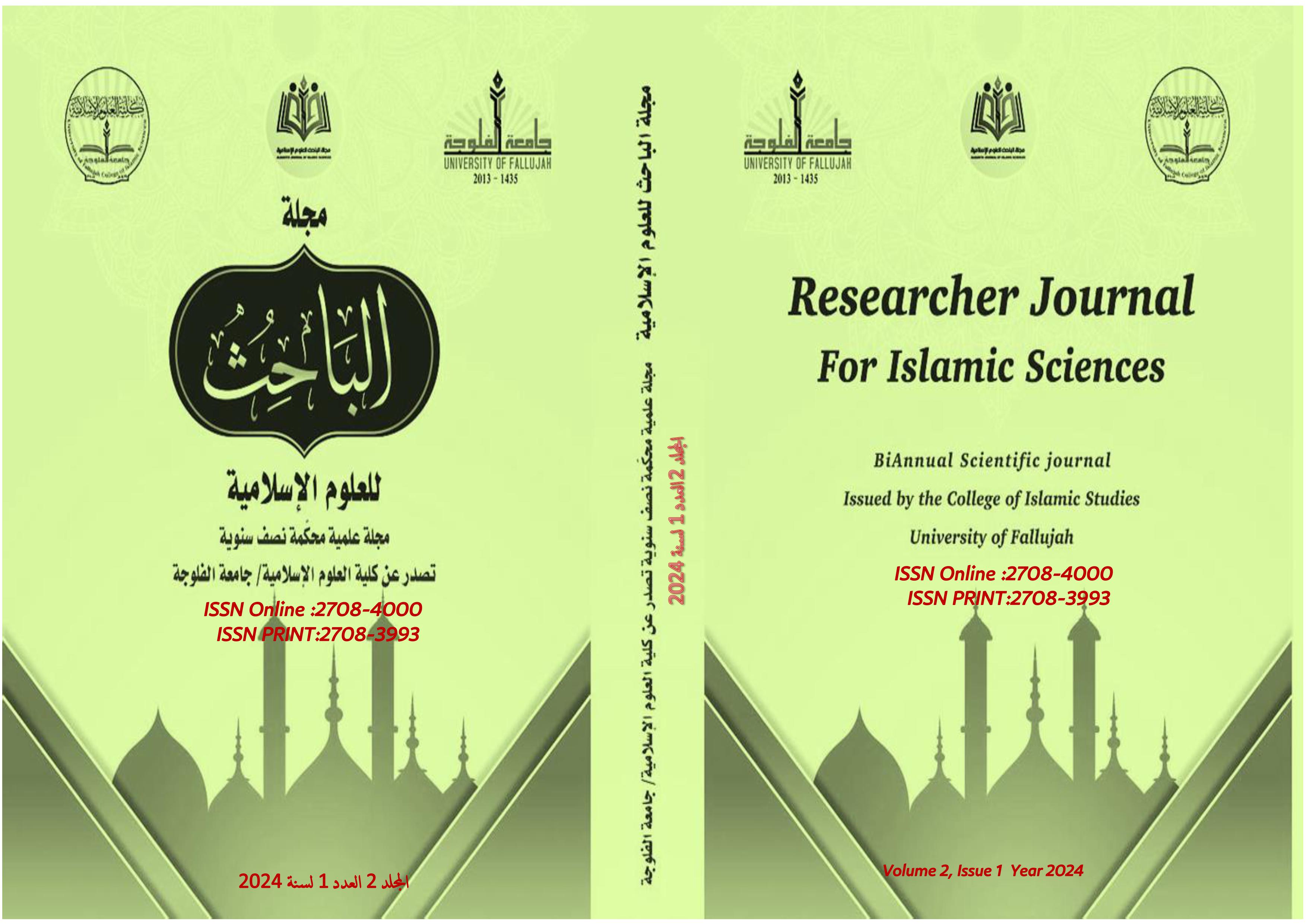Combining Intentions and Its Ruling in Islamic Jurisprudence: Acts of Worship as a Model
Abstract
This research discusses the concept of intention (niyyah) and its significance in actions, particularly acts of worship, as covered in this brief study. It focuses on key issues that are frequently questioned, such as combining intentions in ghusl for major impurity (janabah) and the Friday bath (ghusl al-jumu’ah), highlighting the differences among scholars (may Allah have mercy on them). The study also addresses combining intentions in zakat and oath expiation (kaffarat al-yamin), exploring scholarly agreements and disagreements on their permissibility. Furthermore, it examines combining fasting intentions for missed obligatory fasts and expiation, analyzing the scholarly debates on this matter. The final issue discussed is combining intentions in Hajj and voluntary acts of worship. May Allah guide us to the correct path. All praise is due to Allah, Lord of the Worlds, and may blessings and peace be upon our master Muhammad, his family, and companions
Keywords:
Ghusl Janabah, Ghusl Jumu'ah, Zakat, Kafarat al-Yamin, fasting, expia-tions, Hajj, voluntary actsAdditional Files
Published
How to Cite
Issue
Section
License
Copyright (c) 2024 Researcher Journal of Islamic Sciences

This work is licensed under a Creative Commons Attribution-NonCommercial-NoDerivatives 4.0 International License.
تجربة






